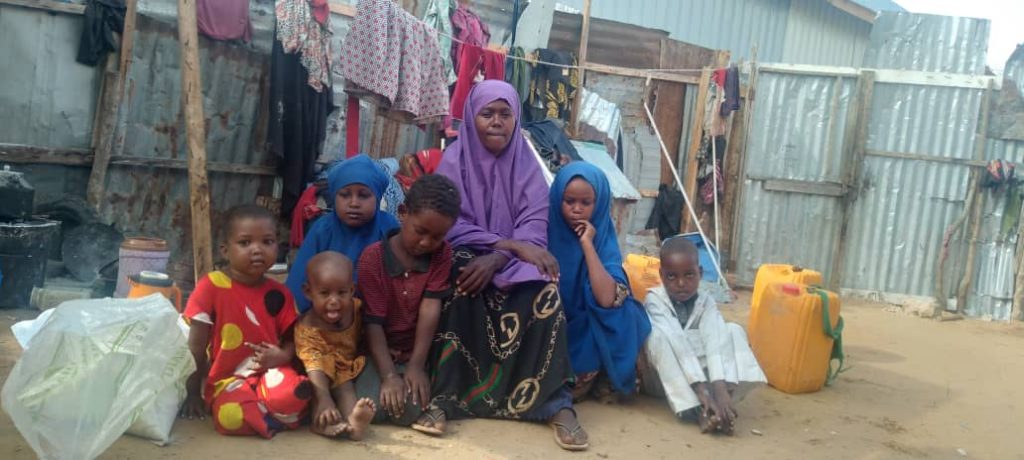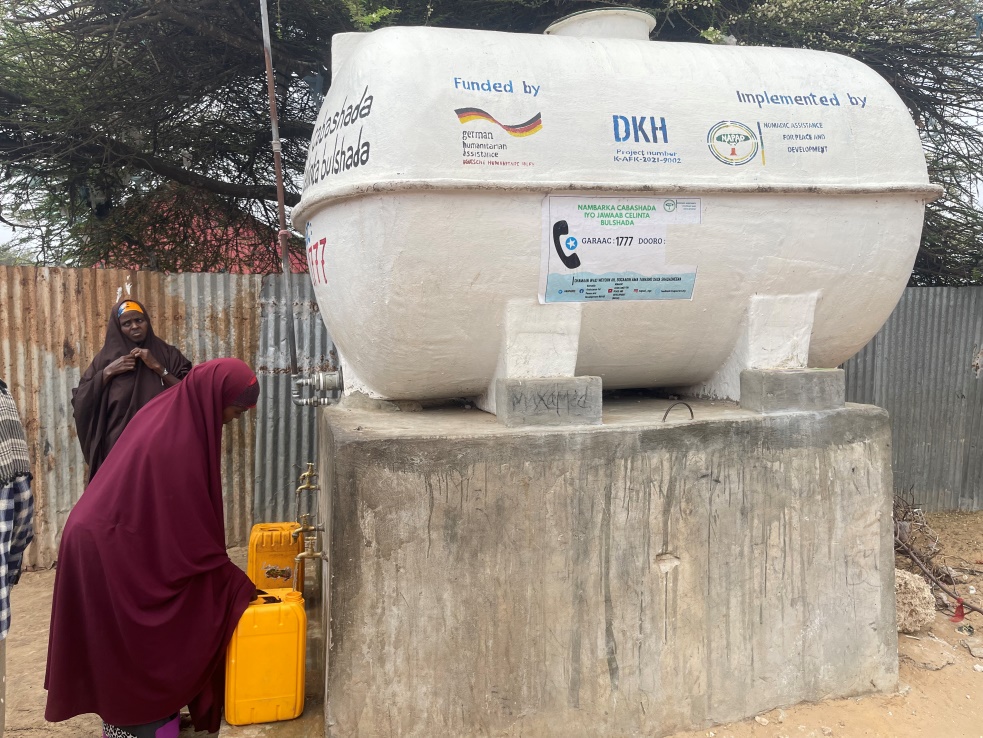Water scarcity in Somalia
The Horn of Africa is facing its driest season in 40 years. Climate change has exacerbated the frequency and severity of droughts that have now left all of Somalia in an extreme drought after four consecutive failed rainy seasons. According to the Multi-Agency Drought Alert in the Horn of Africa of November 2022, about 23.75 million people face daily household water insecurity. Primary water sources such as shallow wells, boreholes and berkads have dried up increasing the water demand. This has led to a massive displacement of people with some walking as far as 30 or 40kms in search of the scarce resource. This situation increases the vulnerability of these households to water-borne diseases, and forces women and children to travel long distances to fetch water, exposing them to heightened risks of violence and exploitation.
According to the EHAGL Regional Protection Working group, children, women and adolescent girls are the most vulnerable people and are at a heightened risk of gender-based violence and conflict as they travel far from their homes in the search of water. Walking for long distances and carrying heavy water load also affects the health of women and girls both physically and mentally and can result in major health complications such as back pains, headaches, spinal pains and even disability.
Rising needs of Drought Affected Displaced Households
Amina Hussein Mohammed, 30 years old and her family previously lived on the outskirts of Diinsoor town in the Bay region. Just like most pastoral communities, her family bred camels and goats as their main livelihood. However, the livestock succumbed to the drought.

“After all our livestock died, we could no longer provide for our family so we decided to walk to Mogadishu hoping we would find help from well-wishers or local NGOs.” Said, Amina
Before they left their home, Amina walked 30 kilometres daily to Diinsoor town with her fellow women and girls to fetch water. However, she could only afford 20l of water and thus never had enough water to meet her household needs.
Amina sadly recalls how she had a miscarriage while on her way back home from fetching water, “I remember walking home and I felt a sharp pain in my lower abdomen. I could not walk, and my friends carried me to a local dispensary run by a local NGO. Afterwards, the doctor informed me, that I had had a miscarriage. I was very devastated when I heard that news.”
Amina is now one of the millions of people who have been displaced by drought. Her family is now resident in the Berey IDP camp, Kahda district in Mogadishu. At the camp, households are now faced with multiple challenges, key among them being a lack of adequate water, sanitation, and hygiene services for them to maintain good hygiene and practices
NAPAD Partnership with Diakonie Katastrophenhilfe Supporting Drought Affected Families In IDP Settlements
NAPAD in partnership with Diakonie Katastrophenhilfe (DKH), is supporting 420 drought-affected households in IDP settlements in Kahda and Garesbaley of Banadir region to access to safe and sufficient water for domestic use as well as promoting good sanitation and hygiene. Each household has been provided with water vouchers for 11 months which allows them to access clean water from community water points established by NAPAD.

Ms Amina’s family is one of the 420 households benefitting from the water voucher program. Amina’s family now has access to 45 litres of clean and safe water every day. Accessing the water means she now has enough water in her home for drinking, cooking, and cleaning. The water accessible from nearby water points also allows her to have more time with her children and invest in alternative livelihoods to support her family.
The project has also provided hygiene kits to these vulnerable households which consist of Jerry cans, multipurpose soap, and aqua tabs to each household. The project also created awareness among the at-risk households on how to purify drinking water, safe water handling, appropriate hand washing and sanitation practices to prevent water-borne diseases.
“I would like to express my gratitude to NAPAD for supporting my family to access clean water and providing us with hygiene kits which have allowed us to improve our household hygiene,” Appreciated Amina.
